There is so much history, legends and myths about honey that a whole series of literature could be created about it. Only one other natural food can rival it in terms of the history and legends surrounding it. This is the cocoa, but honey is the only one that we get in a completely finished form.
Everything that bees give us is amazing. The main gift from them - honey, is a universal food and medicine with high efficiency in the treatment and prevention of various diseases. This ability cannot be doubted, it has been recognized all over the world since ancient times.
Honey is an unique creation from bees that has stood the test of thousands of years as a harmless and effective food product. It is also one of the first remedies known to man. The ancients believed that honey hid mysterious healing powers, so they took it for all illnesses. We have no reason to change this nowadays.
The history of honey - from ancient times to today
Bees have been known to mankind since Neolithic times. It can be said that beekeeping is among the most ancient occupations of man. Our ancestors extracted the precious thick liquid from the hollows and caves where wild bees made their hives.
About 10, 000 years ago, man began to mine honey for the first time. The value of honey was valued in these prehistoric times and preserved in rock paintings in a number of caves where our ancestors found shelter.
In ancient China, in South America, in India and Mesopotamia, as early as 6 thousand years ago, honey was used for food and a universal medicine. In Ancient Egypt, honey mining as an occupation was practiced 6 thousand years ago. The Sumerians inhabiting Mesopotamia in the 5th-4th millennium BC, as well as the Arabs later, called honey an elixir and considered it a gift from the gods.
In Antiquity, in Persia, Rome and Greece, used honey and honey products for the embalming of the dead, and next to the mummies of the pharaohs in Egypt, a pot of honey was placed.
In his Natural History, Pliny the Elder describes the inhabitants of a village in the Apennines, near the Po River, who lived for more than a century because their regular food was honey.
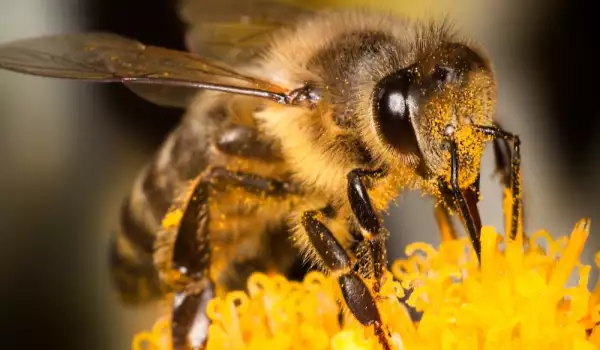
In Ancient Greece, the sweet product of bees was called the drink of youth. Pythagoras was convinced that he had reached a dignified age by constantly feeding on honey.
Aristotle paid special attention to the nutritional and healing qualities of honey and reported that it contains strong natural healing properties as well as many useful substances. We owe the first scientifically systematized data on honey and other bee products to him.
In the Iliad and Odyssey, Homer repeatedly mentions honey and pollen. They also played a prominent role in the ancient Olympic Games, where they were used as food, drink and means of maintaining the body and skin during the competitions.
All religions point to honey as a gift from God and recommend it as both food and medicine. And mead is the national drink of many nations. The idea of the Promised Land, to which the Israelites went, as a place where rivers of honey and milk flow, sounds quite in tune with the understandings of all ancient peoples.
Nowadays, honey and other bee products such as honeycomb and also royal jelly are included in many medicines for various ailments, and the thick, golden-colored liquid continues to be considered one of the most valuable foods of the diverse and a delicious meal.
This remarkable image in the minds of all the people of the world, honey owes to its exceptional composition.
Preparation and chemical composition of honey
Honey is made from nectar that bees collect from the flowers of various plants, flowers and secretions from the living part of every plant in the forest and garden. They collect, convert and combine the nectar with substances they secrete from their glands and let it mature into wax.
The resulting liquid is thick, homogeneous, in the form of a syrup or crystallized sweet product with a pleasant aroma. The less water it contains, the thicker a given type of honey is. The product may still differ in color and smell.
Honey has a complex composition and all its components are needed by the human body. Of all the more than 300 substances in its composition, the most important are:
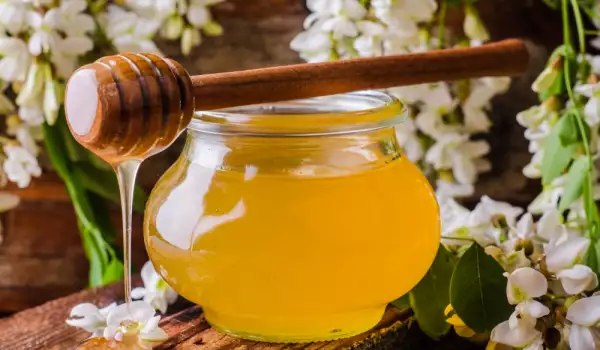
- Sugars - the content is 38 percent fructose, 31 percent glucose and from 1 to 3 percent sucrose;
- Proteins - they are from 0.1 to 2.3 percent;
- About 20 amino acids in number - among them are proline, lysine, arginine, aspartic acid, levsin, tryptophan, glutamic acid and many others;
- Salts of the following organic acids: malic, citric, lactic, oxalic, formic, succinic and others;
- Almost all trace elements known in nature - among them iron, phosphorus, manganese, selenium, sodium, sulfur, germanium, tellurium;
- Many vitamins, but in limited quantities - B complex, H, K, C, E, A;
- Enzymes;
- Flavonoids;
- Biogenic stimulants;
- Essential oils;
- Antimicrobial, antifungal, hormonal and other substances;
- Water;
Honey has a caloric value of 315 to 335 kilocalories.
Properties of honey
The rich honey content, based on the medicinal ingredients, has a regenerating, anti-inflammatory, vasodilating, capillary soothing, antidiabetic effect.
Another part of the ingredients are anti-carcinogenic as well as anti-tumor. Honey also has antibacterial, antifungal, antimicrobial properties, stopping the development of these harmful organisms and killing them. Pure honey cannot form molds and this has been known since ancient times. The antimicrobial effect of honey is due to the powerful plant antibiotics contained in the pollen from which it is produced. These are phytoncides. Falling into the honey, they retain their healing properties.
When we store fruits and vegetables for a long time, the vitamins in them gradually decrease. This does not happen with honey. It keeps its composition unchanged over time. The secret of bees for preserving honey has not yet been revealed. However, it is clear that the vitamin content increases with increasing amounts of pollen and royal jelly in it and this also increases its health qualities.
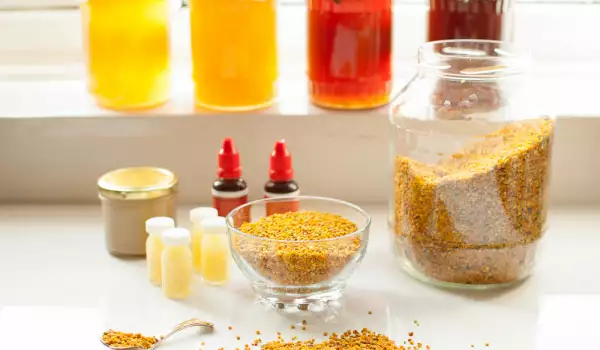
Health benefits of honey
Honey, along with other bee products, is considered the most spiritual and magical food on Earth. It is also one of the best superfoods and at the same time a source of concentrated nutrition.
Regular consumption of honey is recommended by all branches of medicine, all national cuisines and all religions. It can be consumed all year round.
Honey prolongs life, especially the active part of life. It will fill the shortage of substances needed by the body - vitamins, minerals, organic acids, phytoncides and many other biological substances needed by the body will be in balance if honey is regularly consumed.
Supplying the body with the substances it needs leads to the normalization of metabolism, increasing resistance against any harmful and health-threatening microorganisms, viruses and bacteria. Thus the body will be kept physically and mentally healthy and strong.
Honey is a ready-made food that is completely absorbed by the body, is immediately included in all life processes and strengthens them.
It does not require processing by the digestive system, which makes it difficult, on the contrary - it supports digestion and enhances metabolic processes.
Honey destroys pathogenic flora and parasites in the intestinal tract, increases hemoglobin levels, stops vomiting attacks and treats constipation.
Another valuable quality of honey is that it kills all harmful protozoa in the human body.
Meaning of honey
A curative, prophylactic substance and a real complete food - this is honey for the human body. It helps to preserve our health, youth, energy, work capacity and cheerful mood.
For a long and active life, we need wholesome and simple, natural food. The ideal suggestion is honey. It is a living, natural, unprocessed food product that should be placed at the base of our menu. For this, add it more often, not only to healthy teas, but also to your favorite foods. You can garnish fluffy pancakes, katmi, homemade waffles with it. You could also say that our favorite mekitsi are not the same without honey.
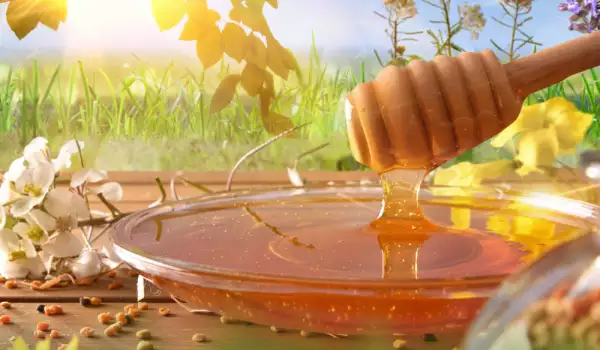
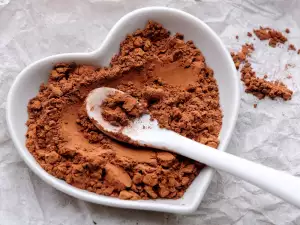
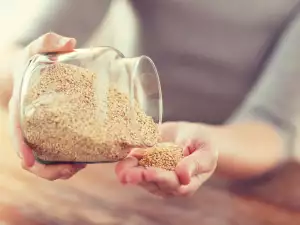



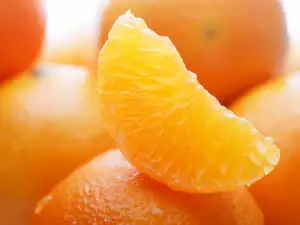
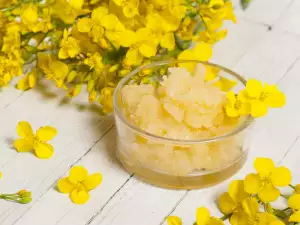
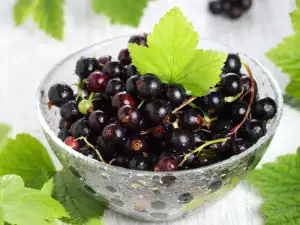
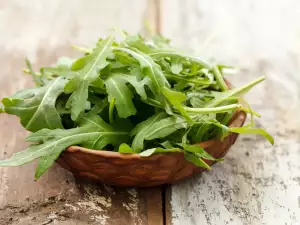
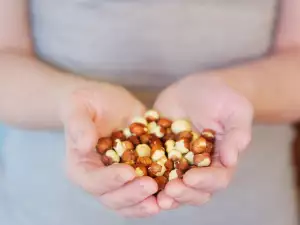


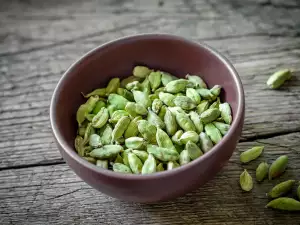
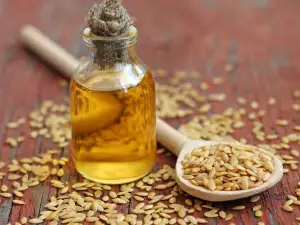
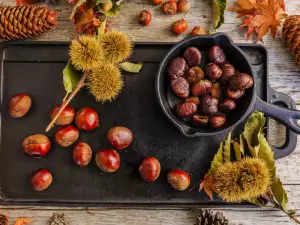




Comments